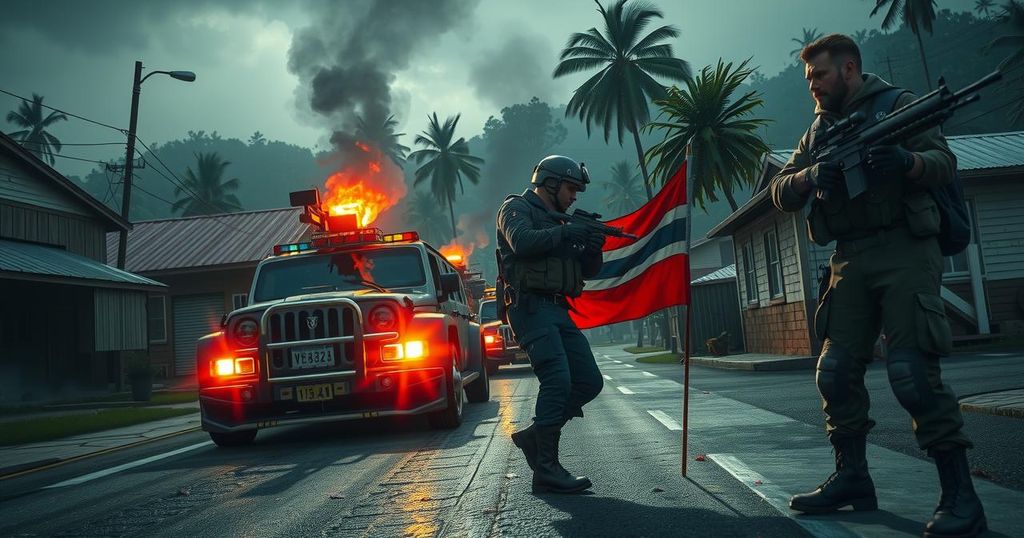Rwanda-backed M23 rebels have seized the town of Masisi in the DRC’s North Kivu province, marking their second territorial gain in two days. This escalation has heightened humanitarian concerns and prompted calls for increased military support. The group previously controlled significant areas of eastern DRC and has been involved in ongoing conflicts since 2021. International mediation efforts remain challenged.
Rebel forces, supported by Rwanda, have successfully captured the town of Masisi in the Democratic Republic of Congo’s North Kivu province, according to multiple reports. This seizure marks the M23 group’s second territorial gain in as many days, escalating their control over vast areas of eastern DR Congo. The ongoing conflict has led to the displacement of hundreds of thousands since the group’s resurgence in 2021.
Angola has been mediating discussions between DR Congo President Félix Tshisekedi and Rwandan President Paul Kagame; however, these talks collapsed last month. Alexis Bahunga, a member of the provincial assembly, expressed grave concern over the situation, stating the capture has “plunged the territory into a serious humanitarian crisis” and called for a strengthening of military presence in the region.
Residents reported that the M23 convened a meeting with local inhabitants, declaring their intentions to “liberate the country.” The Congolese government has yet to issue a statement regarding the loss of Masisi, which has a population of approximately 40,000 and serves as the capital of its eponymous territory, situated around 80 kilometers north of Goma, a city previously occupied by the M23 in 2012.
On Friday, the M23 also took control of Katale, an adjacent town. Concerns lingered last year that the M23 would advance towards Goma, a city with a population nearing two million; however, fighting subsided until resuming in early December.
Rwanda has acknowledged a UN report indicating that approximately 4,000 Rwandan soldiers are deployed alongside M23 forces. The Rwandan government asserts that the Congolese authorities have failed to address the long-standing conflicts plaguing the eastern region, while critics accuse Rwanda of exploiting the M23 to profit from the rich mineral resources of DR Congo. Contributions to global markets from these minerals, particularly gold and tantalum, have drawn critical scrutiny, especially following legal actions from DR Congo against major tech companies for utilizing these so-called “blood minerals.”
As the situation continues to unfold, it raises significant humanitarian concerns and poses challenges for regional stability in central Africa.
The conflict in the eastern Democratic Republic of Congo (DRC) has been ongoing for decades, primarily fueled by ethnic tensions and struggles over control of valuable mineral resources. The M23 group, originally formed in 2012, claims to advocate for the rights of the Tutsi population in the region. However, the group has been accused of capturing resources and contributing to humanitarian crises, which have led to significant displacement of the local population. International efforts to mediate peace, such as Angola’s recent attempts, have often faced barriers, highlighting the complexities embedded in regional relationships and historical grievances, particularly involving Rwanda.
The recent capture of Masisi by Rwanda-backed M23 rebels signifies an alarming escalation in the ongoing conflict within the DRC. This situation not only exacerbates the humanitarian crisis in the region but also emphasizes the broader implications of foreign intervention and the struggle for control of valuable resources. The inadequate response from both local authorities and international mediators underscores the urgency for effective diplomatic and military strategies to address the complexities of the conflict and restore stability to the area.
Original Source: www.bbc.co.uk






